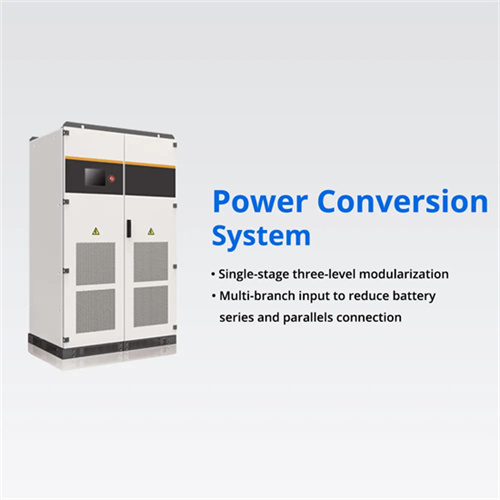Uganda ree energy

Kruisvallei Hydro | Red Rocket Energy
The facility caters to the energy needs of 1916 households annually. Visit Project Website. Latest News* Red Rocket News. Three Interns Reach for the Skies with Inaugural Roggeveld Internship Programme. December 13, 2024. Red Rocket

Uganda National Renewable Energy and Energy
Uganda National Renewable Energy and Energy Efficiency Alliance (UNREEEA) is a non-profit, non-partisan apex organisation of business associations and actors in the renewable energy and energy efficiency subsector.

Promoting renewable energy and improving energy
Uganda is rich with biomass, water, solar, geothermal and wind energy resources. However, due to inefficient use, much of this potential is wasted. This leaves many people without access to electricity and clean energy for cooking,

ARE & UNREEEA Sign MoU to Foster Decentralised
30 August 2021 – The Uganda National Renewable Energy and Energy Efficiency Alliance (UNREEEA) and the Alliance for Rural Electrification (ARE) have signed a Memorandum of Understanding (MoU) to work together to foster the

Powering Uganda: the quest for universal electricity
As describes in a prior blog article, the per capita electricity consumption in Uganda was only 75 kWh/a in 2019, while in Germany it is 6787 kWh/a. Notably, Uganda''s power sector is primarily driven by renewable

Uganda National Renewable Energy & Energy
Founded in 2014, the Uganda National Renewable Energy & Energy Efficiency Alliance (UNREEEA) endeavours to galvanise Uganda''s private renewable energy (RE) sector. Africa Outlook spoke with Esther Nyanzi, CEO

Uganda Energy Transition Plan – Analysis
Uganda 2023. Uganda has set an ambitious agenda to develop its substantial energy and mineral resources, promote economic development, end energy poverty, and lead the country to a just energy transition. Uganda''s

National Renewable Energy Platform – Uniting Efforts,
The National Renewable Energy Platform (NREP) website is your one-stop-shop for sustainable development and utilization of renewable energy resources, services, and products in Uganda. Our ultimate goal is to boost the national

FRES Uganda
Welcome to FRES Uganda. We provide affordable solar electricity services of premium quality to households, businesses, institutions and refugee settlements in 26 districts in the southwest of our country. Foundation Rural Energy

Energy Policy for Uganda 2023 – National Renewable Energy
The ''Energy Policy for Uganda 2023'' is a testament to the country''s dedication to strengthening its energy sector. Recognizing the pivotal role of energy in the national economy, the policy

The Drivers and Barriers of Renewable Energy
A major strategy for decarbonisation is to replace fossil fuels with renewable energy (RE) sources as the fundamental energy source. Uganda has substantial RE resources for the provision of energy services and production,

Red Rocket Energy | Creating Clean Energy for Africa
And we''re on a mission to create clean energy across the continent by harnessing the power of nature''s technologies – sun, water, wind, and earth. C o n s t e l l a t i o n o f p o s s i b i l i t i e s .

4 FAQs about [Uganda ree energy]
What is unreeea?
UNREEEA aims to provide a platform to consolidate all private sector players specialising in Renewable Energy and Energy Efficiency through government engagement and programs for example National Renewable Energy Platform. Ministry of Energy and Mineral Development. Amber House,Plot 29/33, Kampala Rd. Kampala, Uganda
How sustainable are re technologies in Uganda?
Renewable energy (RE) technologies in Uganda face challenges due to their capital intensity, making it difficult for customers, especially those in rural areas, to adopt them instantly. To make RE businesses more sustainable, incentives from the government and development partners are needed.
How many off-grid products are sold in Uganda?
According to the GOGLA’s Semi Annual Sales and Impact Data report (January-June 2020), at most 128,242 off-grid products were sold in Uganda. This represents a 42 percent reduction compared to the 2019 analysis and a 29 percent decline from the first half of 2019.
Who is involved in NREP?
NREP is made up of six key stakeholder groups: Government through Ministries, Department and Agencies (MDAs); Development Partners; Private Sector and Civil Societies; Academia, Research for development and communities of practice; Finance Institutions; and Consumer Organizations.
Related Contents
You may like
- Tesla Solar Roof High Voltage Storage: Revolutionizing Commercial Rooftop Solar in the Middle East
- Why Fractal Energy Storage Consultants Are Shaping Tomorrow's Power Solutions
- Beyond Batteries: The Surprising Science Behind Modern Energy Storage
- Battle of the Titans: A Data-Driven Plot Comparing Top Energy Storage Companies
- Top 5 Suppliers for 2kW 5kWh Off-Grid Solar Power Systems in 2025
- Power Converter Interfaces: The Hidden Heroes of Electrochemical Energy Storage
- Valencia Gardens Energy Storage Project: Powering the Future While Saving Today